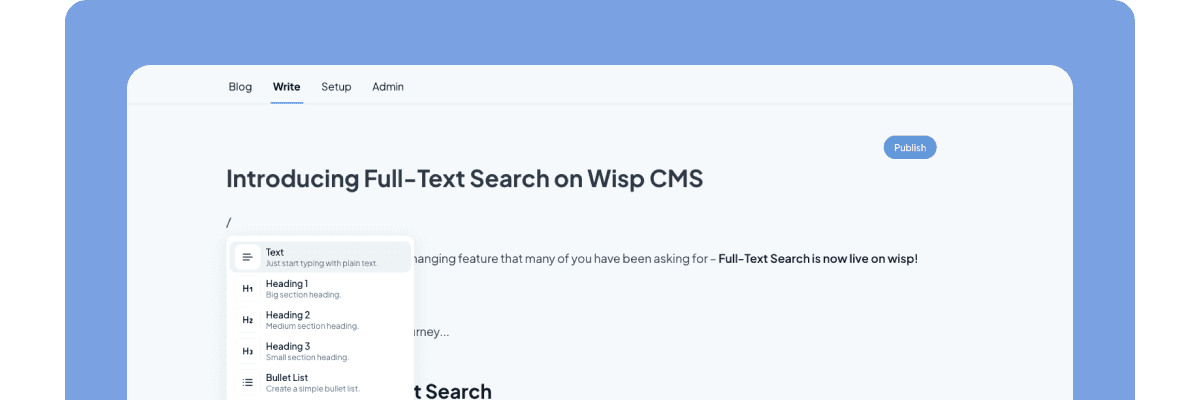
Introduction
Indie hacking has emerged as a popular and viable avenue for independent entrepreneurs seeking to build and sustain their own businesses without relying on external funding. It embodies the ethos of independence and self-reliance, focusing on creating profitable ventures that can thrive without the backing of venture capital.
Let's explore in this article the world of indie hacking, exploring its history, characteristics, benefits, challenges, and providing insights into how aspiring indie hackers can get started.
History and Evolution of Indie Hacking

Indie hacking, as a term and a movement, has its roots in the broader entrepreneurial and startup culture. The movement began to gain traction in the early 2010s, driven by the increasing availability of online tools and platforms that lowered the barriers to entry for starting and scaling a business. Websites like Indie Hackers, founded by Courtland Allen in 2016 and later acquired by Stripe, played a pivotal role in fostering a community where indie hackers could share their stories, challenges, and successes.
The rise of the indie hacking movement can be attributed to several key factors:
Technological Advancements: The proliferation of affordable and accessible technology, such as cloud computing, no-code platforms, and online marketplaces, has empowered individuals to develop and launch products with minimal resources.
Shift in Entrepreneurial Mindset: There has been a growing disillusionment with the traditional venture capital model, with many entrepreneurs preferring to maintain control over their businesses and avoid the pressures of rapid scaling and profitability expected by investors.
Community and Support Networks: Platforms like Indie Hackers, Product Hunt, and Hacker News have created spaces where indie hackers can connect, collaborate, and learn from each other, fostering a supportive and collaborative environment.
Characteristics of Indie Hackers
Indie hackers are defined by several distinctive traits:
Independence and Self-Reliance: Indie hackers operate independently, often as solo founders or in small teams. They take on multiple roles, from development to marketing, and rely on their skills and resourcefulness to navigate challenges.
Focus on Profitability: Unlike traditional startups that may prioritize user growth or market share, indie hackers place a strong emphasis on building sustainable and profitable businesses from the outset.
Lean and Agile Methodologies: Agile development and lean startup principles are central to the indie hacking approach. This involves iterating quickly, validating ideas with minimal viable products (MVPs), and continuously refining the product based on user feedback.
Bootstrapping: Indie hackers typically bootstrap their ventures, using personal savings or revenue generated from the business itself to fund operations and growth, avoiding external investment to retain full control and ownership.
Benefits and Challenges of Indie Hacking
Benefits
Flexibility and Freedom: Indie hacking offers unparalleled flexibility, allowing entrepreneurs to work on their own terms, set their schedules, and pursue projects that align with their passions and interests.
Creative Expression: Indie hackers enjoy the creative freedom to experiment with ideas, develop innovative solutions, and bring their unique visions to life without external constraints.
Financial Independence: Successful indie hackers can achieve financial independence, building businesses that generate steady revenue and provide a sustainable livelihood.
Challenges
Financial Instability: Without the cushion of venture capital, indie hackers often face financial uncertainty, particularly in the early stages of their ventures.
High Workload: Managing all aspects of a business single-handedly or with a small team can be overwhelming, leading to long hours and potential burnout.
Limited Resources: Indie hackers must be resourceful and efficient with limited financial and human resources, which can impact the speed and scale of growth.
Tools and Resources for Indie Hackers
Several tools and platforms are invaluable for indie hackers in their journey:
Development Tools: Platforms like GitHub, Heroku, and various no-code/low-code tools enable rapid development and deployment of products.
Marketing and Growth: Indie hackers utilize tools like Mailchimp for email marketing, Google Analytics for performance tracking, and social media platforms for audience engagement.
Community Platforms: Websites like Indie Hackers and Product Hunt provide a community where indie hackers can share their progress, seek feedback, and learn from peers.
How Wisp CMS Can Help
Wisp CMS offers a streamlined and user-friendly content management solution that can significantly benefit indie hackers. With its clean writing environment, intuitive image upload, and powerful content API, Wisp CMS allows indie hackers to focus on creating compelling content without being bogged down by technical complexities.
Its seamless integration with frameworks like Next.js and Vue.js makes it an ideal choice for indie hackers looking to launch and manage their blogs or content-driven websites efficiently.
Case Studies and Success Stories
Case Study 1: Pieter Levels

Pieter Levels, the founder of Nomad List and Remote OK, is a prominent figure in the indie hacking community. He built both platforms from scratch, focusing on providing valuable resources for digital nomads and remote workers. By bootstrapping his ventures and leveraging market insights, Levels achieved significant revenue and influence without external funding.
Case Study 2: Daniel Vassallo

Daniel Vassallo, a former Amazon engineer, transitioned to indie hacking with multiple small projects, including a book about his career journey and a SaaS product called Userbase. Vassallo's approach of diversifying his efforts across several projects exemplifies the indie hacker mindset of exploring multiple avenues for success. He now runs a community, smallbet, that aims to be the support network for indie hackers to get their first small win.
Getting Started with Indie Hacking
Identifying a Niche or Problem
The first step in indie hacking is identifying a niche or a problem that you are passionate about solving. This could be something you have personally experienced or observed in the market. Begin by conducting market research and validating the demand for your idea.
Developing a Minimum Viable Product (MVP)
Creating an MVP involves building a simplified version of your product that addresses the core problem and allows you to gather feedback from potential users. This iterative approach helps refine the product based on real-world usage and feedback.
Marketing and Growth Strategies
Effective marketing is crucial for indie hackers to reach their target audience. Utilize content marketing, social media, and email campaigns to build awareness and attract users. Growth hacking techniques, such as leveraging viral loops and referral programs, can also drive user acquisition and retention.
Conclusion
Indie hacking is a path filled with both opportunities and challenges. It offers the freedom to create and innovate while demanding resilience and adaptability. For those who value independence and are willing to navigate the hurdles, indie hacking can be a fulfilling and financially rewarding endeavor.
Platforms like Wisp CMS can further simplify the journey by providing easy-to-use tools for content creation and management, enabling indie hackers to focus on what they do best – building and growing their businesses. So, if you have an idea and the determination to see it through, indie hacking might just be the perfect avenue for you to explore.



